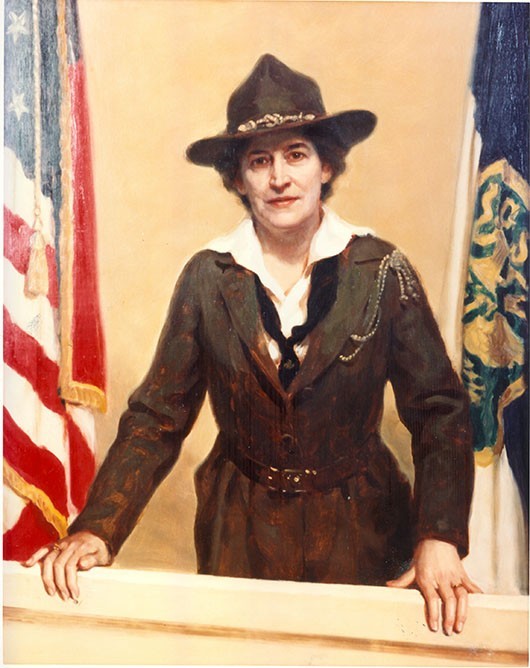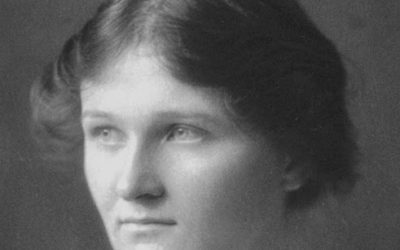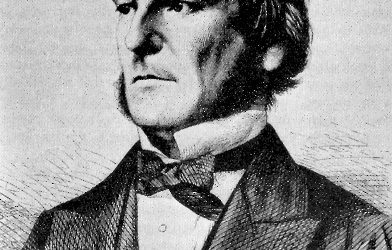The turn of the 20th century was the first great era of female emancipation in the United States. For the first time in centuries, public figures encouraged women to wear clothing that facilitated movement, take healthy exercise regularly, and involve themselves in their communities instead of staying at home all their adult lives. The temperance and women’s suffrage movements gave women a stake in society to fight for, and the advent of the safety bicycle gave them a practical way to travel long distances while depending on no one and nothing besides their own two feet. Among the many voices encouraging female activity and achievement at this time, one of the strongest belonged to a quirky Southern socialite who brought international scouting to the girls of the United States: Juliette Gordon Low.
She was born Juliette Gordon on Oct. 31, 1860 in Savannah, Georgia. Her father was a wealthy Georgian cotton merchant, her mother a writer from Chicago. From a young age Juliette, nicknamed “Daisy” by her parents, was an outgoing and active girl who loved the outdoors; unfortunately, she was also a sickly child and very accident-prone. Juliette suffered from hearing problems, broken limbs and occasional bouts of malaria throughout her childhood, but nothing could keep her shut up in the house for long. Whenever she had a chance, she was camping, hiking, and painting outdoors, even at the boarding schools where she was meant to be learning how to become a “proper” young lady.
In her early 20s Juliette fell in love with William Low, the son of a family friend, but shortly after their first meeting he left Savannah to study at Oxford. A few years later, however, he returned and proposed marriage to her, and the two were married in 1886. During their wedding ceremony, a grain of rice thrown by one of the well-wishers became stuck in Juliette’s ear, and though at first she tried to ignore it, the pain ultimately became so great that she visited a doctor to have it removed. While trying to pick up the grain, the doctor punctured her eardrum by mistake, and the resulting infection left her with permanent hearing loss.
It was a bad omen for what would turn out to be a terrible marriage. William was an irresponsible man who spent long periods away from home, and for much of their early married life the bride and groom barely saw each other. William began to have affairs outside the home, and by 1902 he had decided that they ought to divorce. Juliette discovered that a divorce would only be granted if she could prove adultery and desertion on his part, and social considerations made her reluctant to air her husband’s failings in public. Divorce proceedings dragged on for years until, finally, William ended them by dying from a seizure in 1905. To make things worse, he had willed the bulk of his estate to a mistress, and Juliette found it necessary to contest the will in order to receive a settlement to live on.
Left on her own, Juliette refocused her energies toward her hobbies and charitable interests. Years of health problems had made some of her favorite outdoor pursuits impossible, but she continued to travel, sculpt and socialize. Then, in 1911, she attended a party where she encountered the founder of the Boy Scouts in England, Sir Robert Baden-Powell. Baden-Powell was a firm advocate of outdoor living and healthy exercise for both boys and girls, and his sister Agnes had set up a companion organization for girls, the Girl Guides, in England just two years earlier. Inspired by their example, Juliette traveled with them to promote Scouting in the United States, and the next year she began to create her own expression of their ideals, in the form of the Girl Scouts of the United States of America.
Scouting combined all of Juliette’s interests into an organized way of life. She turned her estate in Savannah into a headquarters and devoted much of her fortune to promoting and funding Girl Scout activities. By 1916 there were over 7,000 Girl Scouts throughout the country, and activities to support American involvement in World War I made them nationally famous. In 1917 they began to sell their famous cookies, both to raise money for the organization and to teach Scouts financial skills. By 1920 the organization had largely outgrown its founder, and at this time she chose to step down as president of the organization, leaving its management to a new generation of administrators. Within her own lifetime, she had seen the Girl Scouts become an institution in American life, and though she remained active in scouting events, it had become clear to her that this was something much bigger than herself.
Juliette Low was a woman who always dreamed big. She reached for the stars even when that meant stretching too far and tumbling to the ground. As a child she wanted to roam freely and explore the great outdoors; as an adult, with many of those opportunities denied to her, she worked to make them available to the younger generation of girls that followed. It’s a testament to her passion and dedication that even now, nearly a century after her death, she is still referred to by the Girl Scout leadership as “the best scout of them all”.
Next Post:Miguel Ondetti, the Argentinian chemist who persevered through a difficult education to ultimately discover the first effective heart disease medication.














